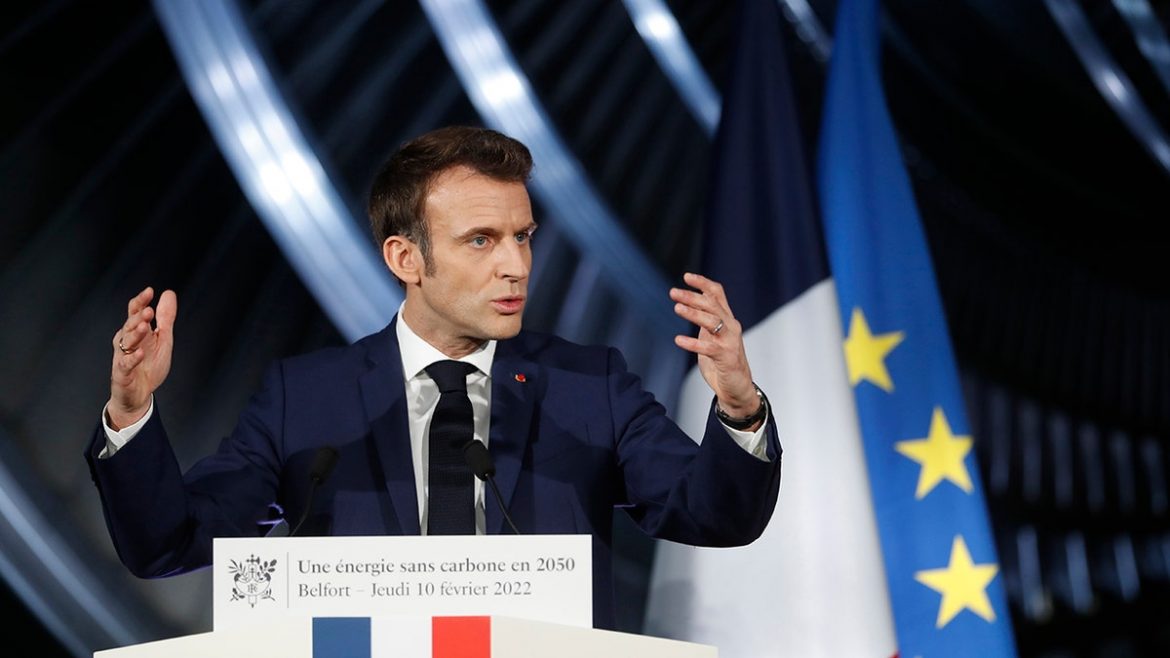French President Emmanuel Macron faced a backlash this week after he claimed that a win for either the far-right or hard-left in the upcoming snap election could lead to a ‘civil war.’
‘This is a strategy of fear,’ Eric Ciotti, leader of the conservative Republicans, said during an appearance on radio station BFMTV-RMC.
Patrick Kanner, the head of the Socialists in the French Senate, claimed that Macron’s comments showed that people are dealing with ‘someone who no longer controls anything.’
Meanwhile, Marine Le Pen of the National Rally Party argued that Macron’s comments betray that he ‘thinks he’s lost the election,’ and National Rally President Jordan Bardella quipped that the French president ‘should not say that.’
Macron initiated the snap election, with the first round set to occur on June 30, after right-wing parties outperformed their rivals – including Macron’s own centrist Renew Party – during the European Parliamentary elections on June 9.
While the European elections do not necessarily impact domestic politics, many take them as a midterm indication of voter sentiments. As such, Macron argued that the only responsible move was to give the people a chance to reshape the government if they so strongly disagreed with his administration.
Macron’s approval rating is also at an all-time low of 26%, down 6 points from a survey taken just a month earlier, Bloomberg reported. Macron has hit this level twice before, in April 2023 and late 2018.
During his appearance on the ‘Generation Do It Yourself’ podcast this week, Macron said that the National Rally manifesto was based on ‘stigmatization or division.’
‘I think that the solutions given by the far right are out of the question, because it is categorizing people in terms of their religion or origins and that is why it leads to division and to civil war,’ Macron said.
‘But that one as well, there is a civil war behind that because you are solely categorizing people in terms of their religious outlook or the community they belong to, which in a way is a means of justifying isolating them from the broader national community and, in this case, you would have a civil war with those who do not share those same values,’ Macron said in reference to the far-left France Unbowed Party.
His alarmist language this week prompted outrage from his rivals as they prepare for a key television debate on Tuesday evening, Barrons reported. Macron’s own position is not in danger as his term runs until 2027, but the election will determine who will serve as his prime minister and guide France’s domestic policies.
Some polling indicates that the National Rally – the reformed National Front – could end up with the largest share of votes after the first round, potentially winning around 35% of the votes. The rival left-wing alliance, under the title New Popular Front, would win around 28%, and Macron’s own centrists would scrape out around 21%.
The second round of voting will take place on July 7 in districts where candidates failed to win more than 50% in the first round.
However, no party will therefore have a commanding majority in the parliament and alliances will play a vital role in shaping the next French assembly. Some have looked to former French President François Hollande, who initiated a campaign to take his former parliamentary seat, as a potential mediator should he return to parliament, according to The Telegraph.
The snap election has thrown France into chaos, with protests in the streets as the people treat the elections as an existential crisis.
Famed Nazi-hunter Serge Klasfeld said in an interview that if faced with the National Rally against the far-left party, he would choose the right-wing National Rally. ‘When there is an antisemitic party and a pro-Jewish party, I will vote for a pro-Jewish party,’ Klasfeld said, according to the Jerusalem Post.
French soccer star Kylian Mbappé used the pre-match conference ahead of France’s opening European Championship match to implore the voters to support anyone other than National Rally.
‘I want to talk to the whole of the French people, but also the youth,’ Mpabbe said, according to The Guardian. ‘We are a generation that can make a difference. The extremes are at the gates of power. We have the chance to choose the future of our country.’
